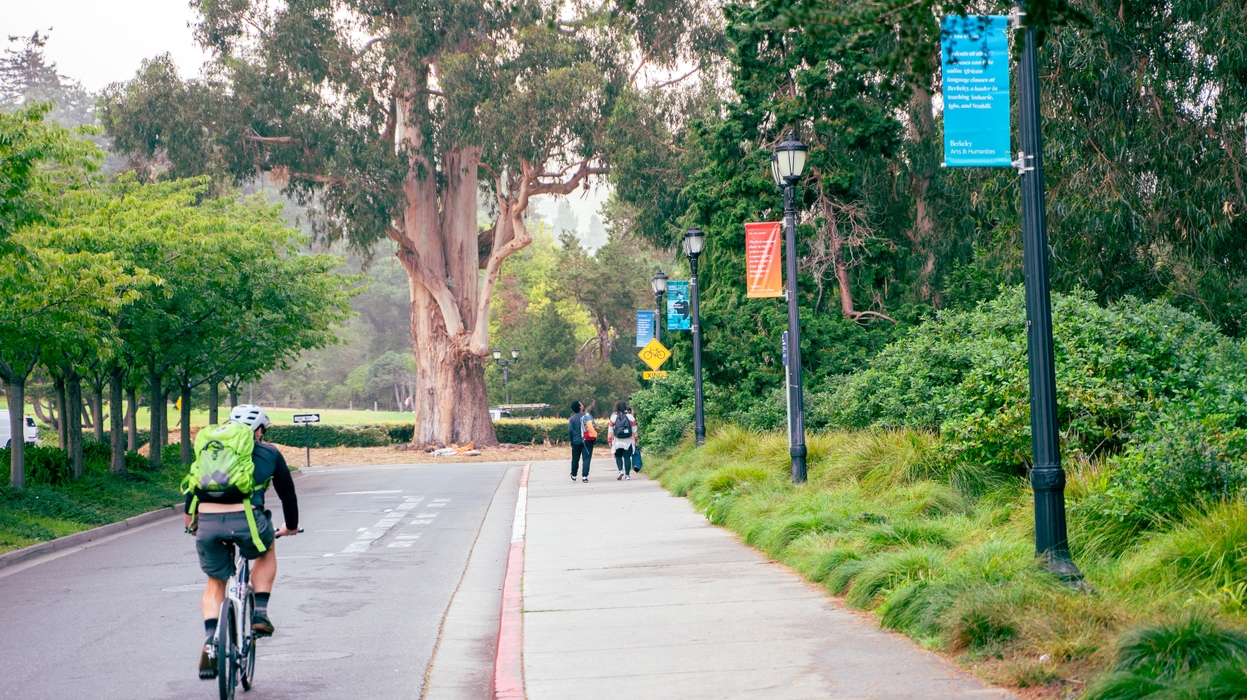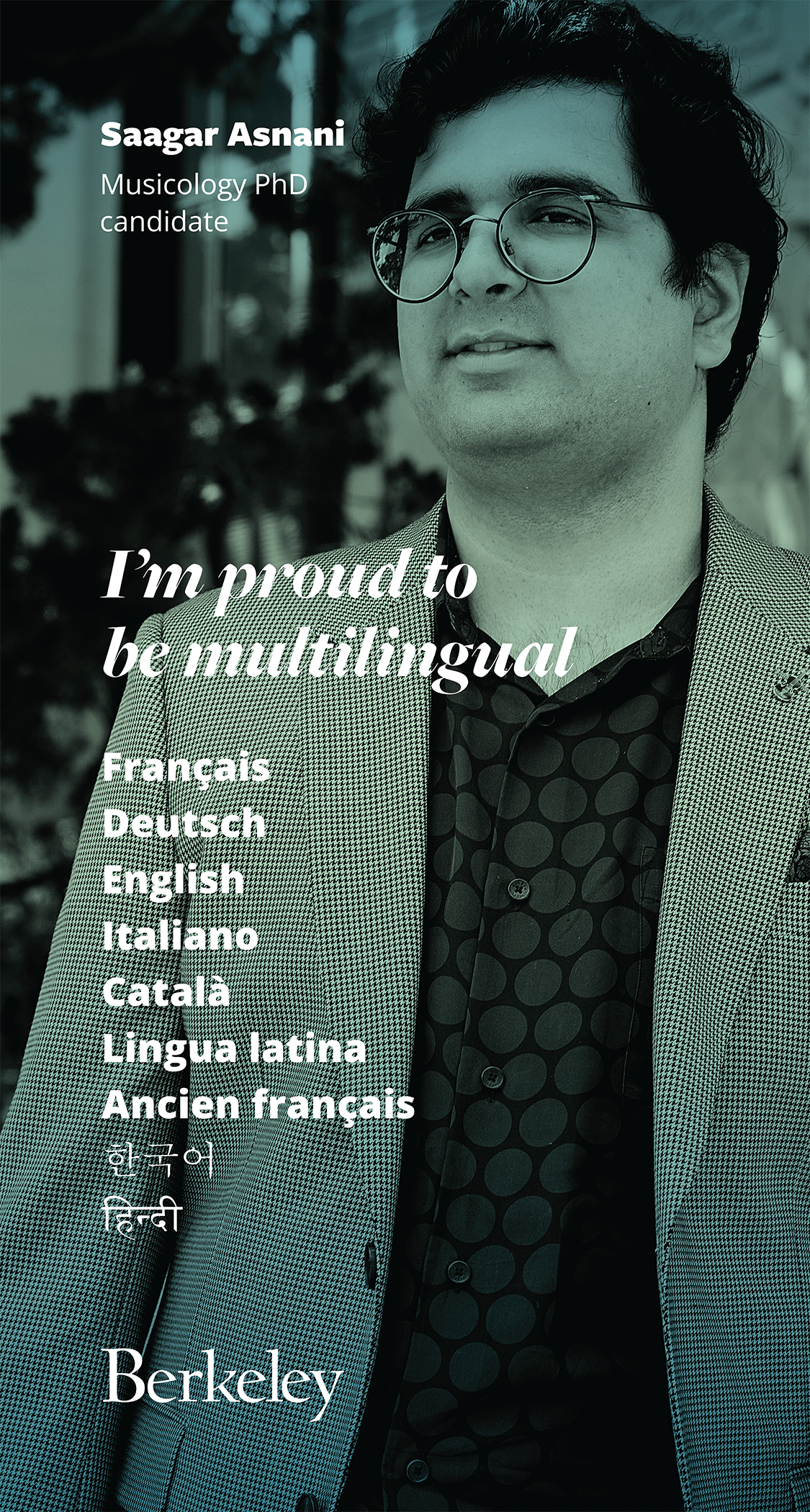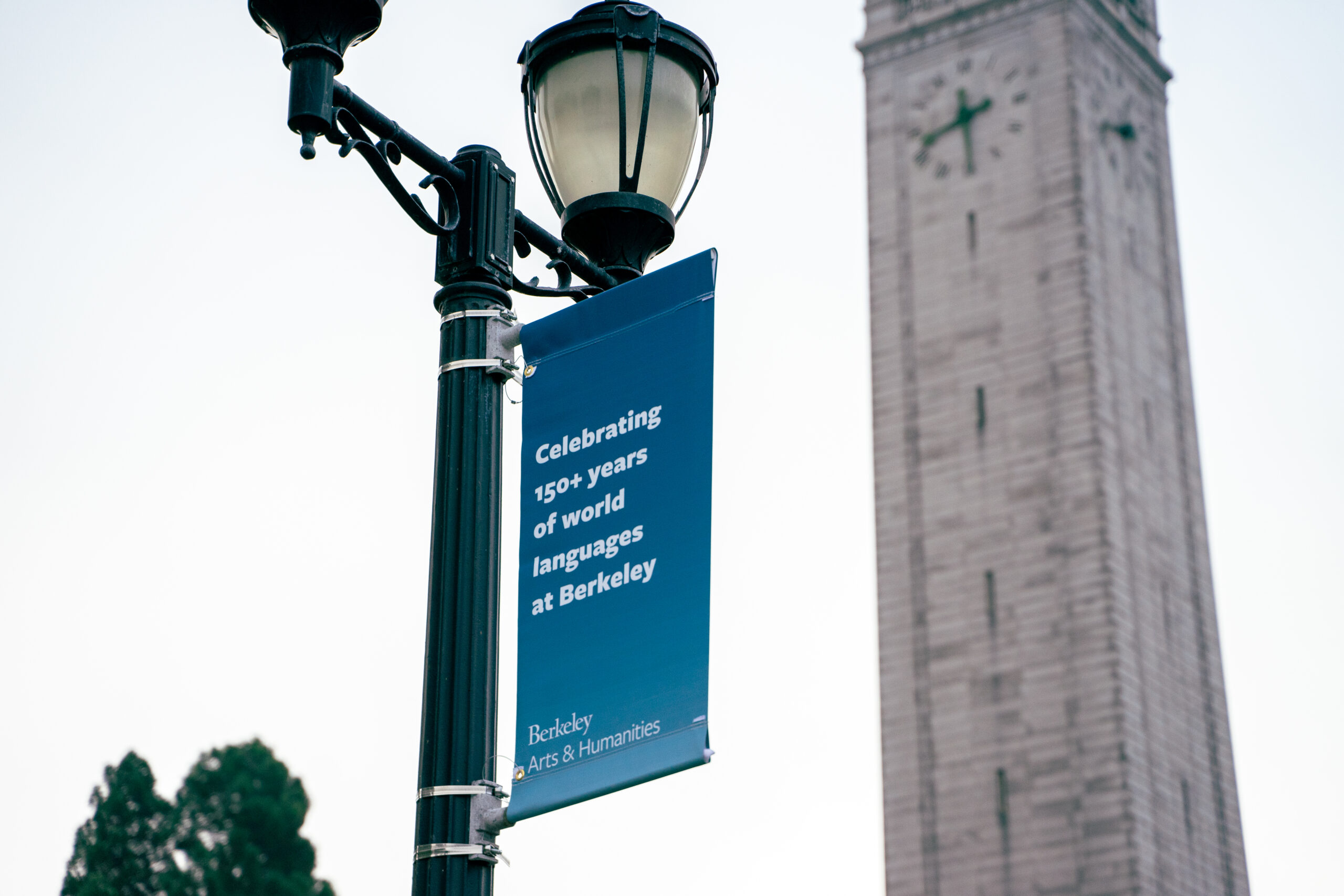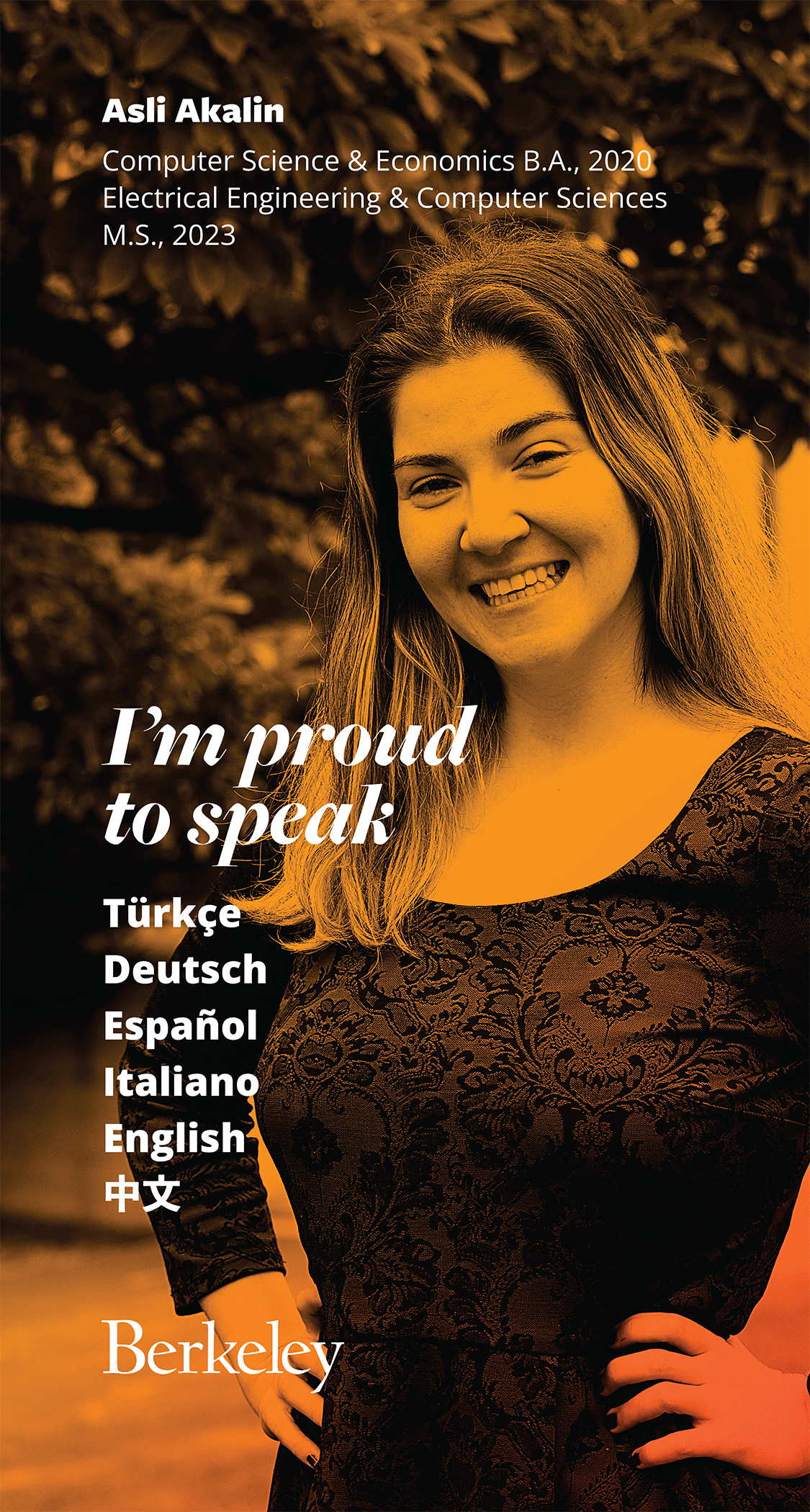New banners celebrate 150+ years of Berkeley’s prominence in teaching world languages
Some 60 languages are taught on campus, and revitalizing and preserving endangered languages is a priority.

Neil Freese / UC Berkeley
October 24, 2023
At least 60 languages — from Mongolian and Old Norse to Polish, Catalan, Ancient Egyptian, Arabic and Biblical Hebrew — are taught at UC Berkeley, one of the nation’s top institutions for the breadth and depth of its world languages program. A growing emphasis also is being placed at Berkeley on revitalizing and preserving endangered languages, most of them spoken by Indigenous peoples.
To help honor more than 150 years of global languages at Berkeley, 63 colorful banners will begin flying throughout campus today, and for the next 18 months, that feature facts about the campus’s language programs, as well as 21 bilingual and multilingual faculty members, students and alumni.

Jenn Siska for UC Berkeley
Among the messages on the banners:
- Collectively, undergraduates at UC Berkeley speak more than 220 different first languages.
- More than 500 language learning classes are taught at Berkeley annually.
- More than 6,000 Berkeley students enroll in those classes each year.
- In 1872, the first endowed chair in the UC system was created — for the study of East Asian languages at Berkeley.
- Students at all UC campuses can take online African language classes at Berkeley, which is well-known for Amharic, Igbo and Swahili instruction.
Across the country, some colleges and universities are eliminating world language courses to save money. West Virginia’s flagship public university, for example, recently ended courses and degree programs in all foreign languages except Spanish and Chinese.
Meanwhile, Berkeley has “a longstanding commitment to linguistic diversity and the humanistic insights that come from the study of world languages, literatures and cultures,” said Rick Kern, French professor and chair of the French department. “We think that Berkeley can be a model of multilingual global engagement.”
Kern is co-chair of the campus’s Task Force on Languages, Language-Based Disciplines and Global Citizenship that was initiated by Sara Guyer, dean of the College of Letters and Sciences’ Division of Arts and Humanities. The committee met for three semesters and presented its recommendations this summer on how the campus can enhance and support instructional and research strengths in global languages.

Neil Freese / UC Berkeley
Guyer said the study of so many languages on campus “opens up new worlds of knowledge, research and communication.” She added that Berkeley’s steadfast commitment to multilingualism is an effort to help students become global citizens who can “interact meaningfully with people and ideas from different regions of our fast-changing world.”
Berkeley Arts and Humanities produced the new banners, in partnership with the Office of Communications and Public Affairs, along with a website on the 150+ milestone that features interviews with students, alumni and faculty members about the importance of learning languages.

Jenn Siska for UC Berkeley
The profiles include:
- David Kurkovskiy, a Ph.D. student in Slavic Languages and Literatures who was raised in South Brooklyn by parents who are Russian-speaking Jews from Moscow. He speaks eight languages: English, Russian, Belarusian, Ukrainian, Polish, Yiddish, Lithuanian and French.
- Saagar Asnani, a Ph.D. candidate in musicology who is studying music and languages in the 12th to 14th centuries in medieval France. He grew up speaking English and Hindi at home, but now also speaks French, Korean, Catalan, German and Italian and can read Latin and Old French.
- Asli Akalin, who works in the tech industry after earning a B.A. from Berkeley in computer science and in economics in 2020 and an M.S. in electrical engineering and computer sciences in 2023. She speaks English, Turkish, Chinese, Italian and Spanish. From a multilingual family, she says being multilingual is “priceless” in her profession, since she can communicate with colleagues and clients around the world.
Berkeley’s extraordinary linguistic and cultural diversity “can sometimes be hidden below the surface of our everyday interactions in English, even though non-English languages, cultures and world views are utterly central to the university mission of educating global citizens,” said Michael Iarocci, professor of Spanish and Portuguese, associate dean in the Division of Arts and Humanities and a co-chair, with Kern, of the task force.
“We believe that making languages more visible on campus can be an important reminder to all members of the community that people across California, the U.S. and the globe routinely live, work, dream, imagine and invent in more than one language.”